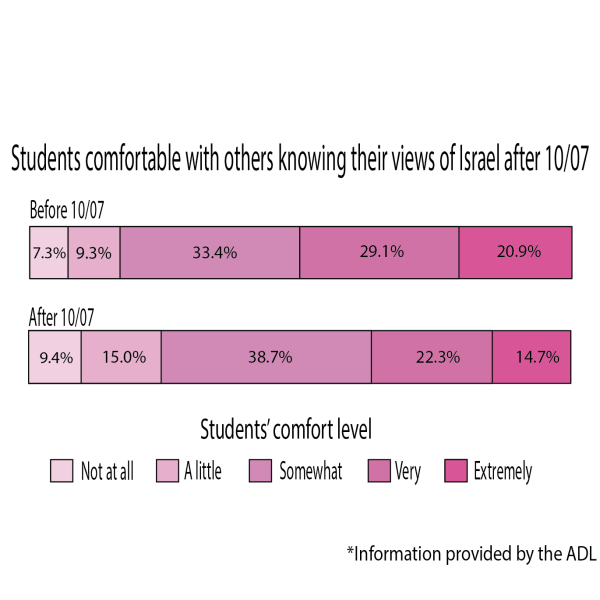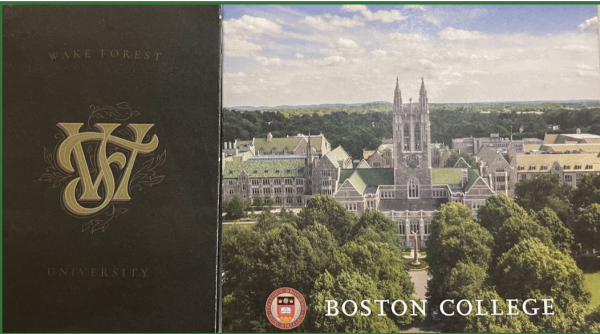Key Connecticut state legislatures are likely to introduce a bill banning legacy admissions at public and private universities in the upcoming 2024 legislative session, which would make Connecticut among the first states in the country to do so.
Critics have raised concerns about the equity of legacy admissions, which grant preferential treatment to applicants with family ties to a university. Education Reform Now CT is among the supporters for ending all legacy admission practices in Connecticut.
“As opposed to just considering a student’s merit, bringing in considerations that are of no control of the student—like whether they have a parent that attended the university—is just inherently unfair,” Executive Director Amy Dowell said. “There are a finite amount of spots at every college, and if you are setting aside for students that are beneficiaries of a legacy, you are by default excluding those that aren’t.”
Organizations such as the Connecticut Conference of Independent Colleges (CCIC), which includes 15 Connecticut universities including Yale, Wesleyan and Trinity, conversely argue that the discretion of whether or not to consider legacy admits or not should remain up to individual institutions. They assert that these universities are best equipped to determine criteria that will foster a suitably diverse admissions class.
“Banning legacy admissions will not move the needle on promoting equity and access in post-secondary,” CCIC President Jennifer Widner wrote in an email. “Instead policymakers should focus on investing in programs that promote opportunities for all students, like need-based financial aid.”
If it’s just being taken into account and not a deciding factor, I think it would be okay for legacy to be a consideration. — Mack Haymond '25
CCIC points out that many Connecticut colleges no longer consider legacy preference or never did in the first place, such as Wesleyan University which discontinued the practice last summer, and many public universities in the state. Many colleges around the country have recently done away with the practice as well. The University of Connecticut has not taken a stance on the proposed ban since they also do not consider legacy status as a part of a student’s application, according to University Spokesperson Stephanie Reitz. However, seven Connecticut colleges still do, including Yale University.
As a Yale legacy himself, this potential bill has prompted Connecticut State Representative Jonathan Steinberg to reflect on the complex implications of this legislation.
“The admissions process is much more complicated and to some degree more subjective than people give it credit for,” Steinberg said. “I just don’t know how big of a factor legacy really is in the scheme of things anymore. Going out of our way to pass legislation forbidding it, basically telling a private institution what they can or can’t do, better be very soundly based.”
This burgeoning movement to ban legacy admissions follows the Supreme Court’s recent decision to strike down affirmative action last summer in the case of Students for Fair Admissions v. President and Fellows of Harvard College. In limiting race-conscious admissions decisions, this ruling has sparked intensified scrutiny and reassessment of fairness of the entire admissions process. While the inclusion of race in the admissions process predominantly benefited Black and Latino students, legacy considerations typically advantage wealthier, white students. Opponents of legacy admissions argue that this necessitates government intervention.
“I think that every college in the country is the beneficiary of some government subsidies, and if the federal government is giving resources to every college, they have an obligation to uphold civil rights and make sure that they’re admitting students in a fair manner,” Dowell said. “This is just not a fair system if it’s overwhelmingly benefitting white, wealthier students.”
According to Steinberg, it is hard to gauge at this point the bill’s chances of passage if it is proposed during this short legislative session. However, if key lawmakers deem it sufficiently important and Committee Chairs advocate for its advancement, it has potential to progress with relative ease.
If signed into law, this ban could impact many high schoolers applying to universities in the upcoming years. Mack Haymond ’25 holds a nuanced perspective on the debate, given his legacy connection to a school he is considering applying to.
“I think that objectively, it is probably not good to give priority to legacy because all it’s really doing is keeping other kids that might be more deserving out of a school,” Haymond said. “But colleges do have some reason to have legacies because it means they’re setting up families that consistently want to keep going there. If it’s just being taken into account and not a deciding factor, I think it would be okay for legacy to be a consideration.”





















































